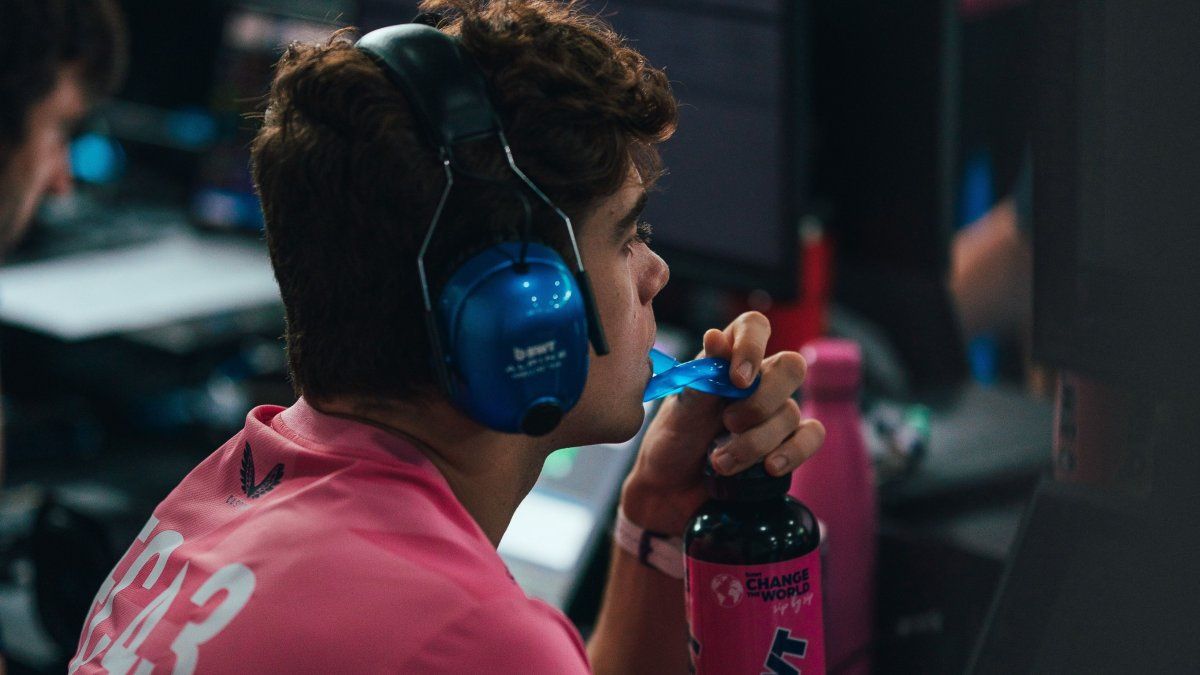He only slept for one and a half hours. Michael Koch developed high blood pressure, became aggressive and eventually unable to work. Then he found help. A story we can all learn from.
You can also have this article read to you:
It comes from the stern archive and first appeared in December 2022.
The mountains in the Bavarian Alpine foothills rise up into the sky like shadows as Michael Koch steps out of the clinic door early in the morning. It is a cold March day and birdsong fills the air. “I had a good night,” he says. “Only woke up four times and slept through for two and a half hours – I haven’t managed that for a long time.”
He got up at six o’clock and now has a sleepless day ahead of him. Naps are taboo, as they would reduce the “sleep pressure” needed to be able to rest again after midnight. If 18 hours of wakefulness are not enough to force his resistant body to sleep, his night’s rest is shortened from six to five hours. This component of his therapy is called “sleep restriction”. star will accompany Koch throughout the year to find out whether the treatment works.
© Marek Vogel
The Sleep Apprentice
Michael Koch, 56, insurance employee: “I finally wanted to learn to sleep again. To do this, I had myself admitted to a hospital for a ‘sleep rehabilitation program’. It was my last hope. Before that, I woke up up to eight times a night and slept through for a maximum of one and a half hours. In total, I usually got three hours of sleep a night. I only managed my office days with three power naps. At ten o’clock in the morning, I would lie down on the carpet in my study, put a pillow under my head, and sleep soundly for 20 minutes. I suffered from concentration and memory problems and could no longer find simple words. I was like an old cell phone with a bad battery. In November last year, I was therefore given sick leave. Physically, I am healthy, and the sleep laboratory found no cause. Before going to the hospital, I had tried everything therapeutically, various relaxation techniques, sleeping pills, but nothing had helped. My goal was to be able to sleep through for four to five hours. And to be able to work again soon.”
The morning walk is a daily ritual before breakfast. Koch walks slowly – “mindfully,” as he says, to enjoy the sunrise. He tries to look at his smartwatch as little as possible, which shows the number of steps and heart rate. One of the behavioral therapist’s tasks: “She says I control too much, am too perfectionistic, and should just let things happen.”
“Rehab is the last straw for me”
Koch is 56 years old, he looks younger. Slim, broad shoulders, narrow hips. “It’s a strange feeling to be here. You could mistake me for the fitness trainer.” The Medical Park Clinic in Bad Feilnbach is a rehabilitation center for people with serious neurological diseases, patients walk around the hospital corridors with walkers. But for the past year and a half, apparently healthy people have been mingling with the afflicted. At that time, a rehabilitation program for people with serious sleep disorders started here, which is unique in Germany. Mainly because it is a full-time inpatient program in the clinic. Normally, chronic sleep problems are treated on an outpatient basis. The insurance companies only pay for the stay if the affected person has another diagnosis that can be billed through a hospital. If the patient is depressed, for example.
But Koch simply has “just” severe sleep problems. In November last year, the insurance employee was signed off sick for this reason. He was threatened with early retirement, and that brought him into the Bad Feilnbach program – which is funded by the pension insurance company. “Rehab is my last hope,” he says. Recently, he was only sleeping through an hour and a half. The rest of his nights he dozed off for ten or 20 minutes. “In total, I got three hours.”
Koch’s story tells how quickly and imperceptibly one can lose sleep. And what one can do to regain it. The diagnostic methods that were used on him, the remedies he tried, the building blocks of his inpatient therapy – all of this has been tried and tested for a long time and can give even milder cases orientation in dealing with their own problem. The first thing to do is to determine whether one really has a problem.
Access to all STERN PLUS content and articles from the print magazine
can be cancelled online at any time
Already registered?
Register here
Source: Stern
I’m Caroline, a journalist and author for 24 Hours Worlds. I specialize in health-related news and stories, bringing real-world impact to readers across the globe. With my experience in journalism and writing in both print and online formats, I strive to provide reliable information that resonates with audiences from all walks of life.




